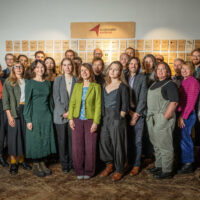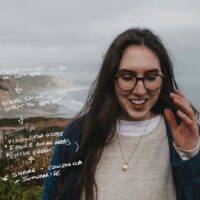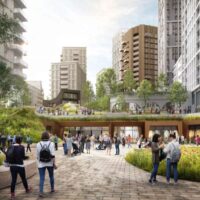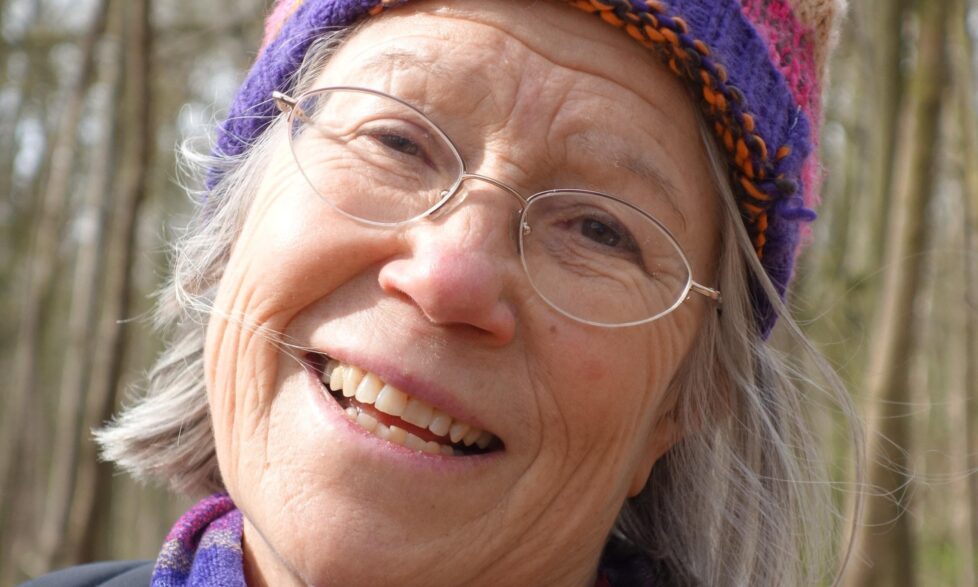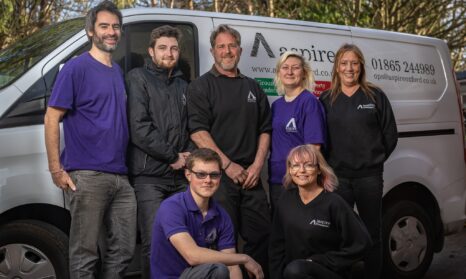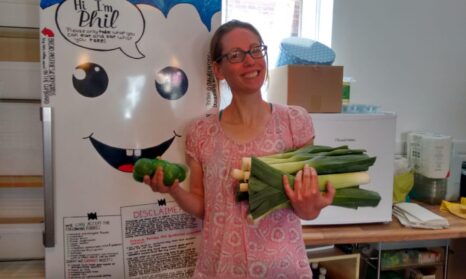"We need a common language to talk about sustainability" - Eleanor Watts, Rose Hill & Iffley Low Carbon Action Group
Earlier this summer, we spoke to Eleanor about the different ways Rose Hill and Iffley Low Carbon Action Group is helping its community become more sustainable, and how its members want to include everyone in the journey.
The community group is part of the One Planet Oxfordshire initiative, where local organisations are creating their own One Planet Action Plans to work towards a county-wide ‘shared vision’ for a better future.
Tell me about your role at Rose Hill and Iffley Low Carbon Action Group.
I chair a local community group in Rose Hill, Oxford. Rose Hill has a lot of economic deprivation and people have problems more immediate than climate change. So understandably, it can be difficult to get everyone interested in climate matters and the environment. As a group, we try and get climate action out of the liberal, green intellectual silo and include all members of the community.
We act on lots of different fronts and ‘meet’ people where they are. For example, one of our current campaigns is to get the university to reopen the area of woodland they fenced off last August. All sorts of people love it – to walk their dogs, play with their children. The university-owned land forms half of the only nature reserve in Rose Hill, so it’s incredibly valuable to local people, even if they wouldn’t see themselves as ‘green’.
How are you using Bioregional’s One Planet Living® framework?
We started using One Planet Living 3 years ago, incorporating it into all our work and helping us to plan our activities.
We run a Repair Café, which covers the zero waste principle. The Café reaches outside the ‘green bubble’ and it’s not just for people interested into eco-living. It’s appealing to those who can’t afford to buy new clothes, electronics, bikes etc. People come to socialise over a cup of tea and their kids have activities while parents get their appliances and clothes fixed. It’s a chance for community to come together – that covers the health and happiness principle too.
We’ve also got a close relationship with Rose Hill School. They have a fantastic headteacher who lets us come in and do assemblies related to the One Planet Living principles, like our Cycling Festival and tree planting events.
In November 2019, the Year 6s planted trees after a whole school assembly when we discussed all the ways we need trees – for their wood, shade and oxygen, for climbing - and for their beauty. Education is key to engaging people with sustainability. The school is even looking at bringing One Planet Living into their curriculum!
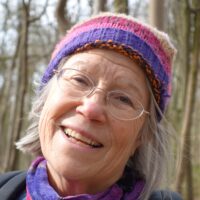
We’re using One Planet Living to work together towards a happy, healthy, equitable community, with an ambition to be the first zero-carbon neighbourhood in the UK.
What do you like most about One Planet Living®?
It’s incredibly simple and easy to visualise, so has become a useful model for us. We’ve taken it on in a big way because it ensures we aren’t just focused on one area - living sustainably is complicated and we want to encourage a whole lifestyle change. One Planet Living is a reminder to do this, so we don’t forget about aspects like food and transport.
Your model also helps our activities to become democratised, like the renewable energy project that Bioregional ran locally in 2015-2016. With our help, it won a grant to put solar PV panels and battery storage on 76 social homes, so renewable energy became something everybody could have. It helped people to cut their fuel bills and that matters to people in fuel poverty.
But one of the main reasons we like One Planet Living is that we all need common language. There is a danger that with so many different environmental action groups, we are splintered, even though we are concerned about the same things. The One Planet Living framework helps us all coalesce around one message, as the local school, community group and church have been doing in Rose Hill.
Can you tell me more about the ‘Rose Hill collective’?
We have three core institutions of our community working on One Planet Living. The community centre has a One Planet Living action plan, the church is being turned into eco-church, and we held a staff meeting on One Planet Living at the school to help them frame all the environmental work they do.
We’re using One Planet Living to work together towards a happy, healthy, equitable community, with an ambition to be the first zero-carbon neighbourhood in the UK.
What are your favourite stories from your work?
One of our volunteers is a Syrian refugee who can’t speak English very well but is an excellent machinist. He joined the Repair Café to give something back to the community that has helped him. Now he’s started making facemasks which we promoted on our Facebook page. His post reached more people than any of our others.
We did some tree planting in 2015 and we learnt a valuable lesson about community outreach. We foolishly hadn’t communicated or consulted with local people enough and sadly about a third of the trees got pulled up by some kids. So when we planted trees again in 2019, we consulted widely beforehand, did an assembly for all the school-children about the importance of trees and involved both Year 6s and a local youth club in the tree planting. So far, none of the recently planted trees have been vandalised
What are your plans for 2020?
This all depends on lockdown. We want to work with the school and youth club to make a large, illustrated community map, showing local cycle routes, parks, the football pitch, play park and charity shop where stuff can be recycled and bought cheaply.
We are also working with a transport group in Oxford, doing a survey of one of the major roads to look at safer cycling. We are campaigning to get all parking removed and wider, continuous, segregated cycle lanes installed. If cycling is safer, more people will cycle.
We’ll be promoting Cosy Homes Oxfordshire’s whole house plans to install retrofit insulation, which we hope will become more popular with the recently announced government insulation grant.
We are also supporting the trial of a microgrid, run by the Low Carbon Hub, which is planning to put big battery in Rose Hill School. We are reaching out to the community to get as many local people on board for this localised grid, which we hope will save them money and energy while giving them a sense of ownership of renewable energy.
